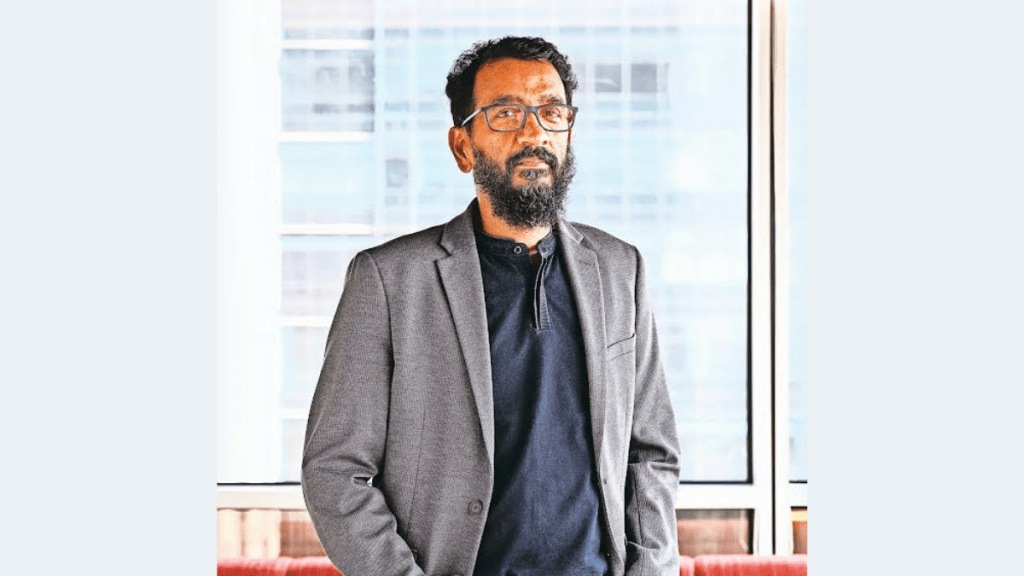The past five years have been dramatic for the digital advertising industry in India, which is expected to overtake television revenues by the end of the year. Unny Radhakrishnan, CEO of Digitas India, the marketing and technology services brand from the Publicis Groupe and among the top 5 digital agencies in India, spoke to Alokananda Chakraborty about how the advertising industry can take advantage of the new technology introductions and help clients improve performance and efficiency. Edited excerpts:
Why is there so much hype around AI in advertising? Where do you see its best use in an agency system?
Any new technology that impacts our behaviour or business will create a lot of buzz. Arthur C. Clarke’s quote, ‘Any sufficiently advanced technology is indistinguishable from magic,’ is perhaps what we are experiencing with AI now. AI has been in agencies and marketers’ lives for a while, where platforms and tools used AI (often mentioned as AI & ML) on large amounts of data and predictive algorithms for business strategies and campaign optimisation. The recent hype is a result of the continuously evolving maturity of LLMs and generative AI. Generative AI tools are being used by many functions like consumer insights, strategy and creative.
The way we see AI in our business is first in the way we work, and second, in the work that we create. In the way we work, we are either building tools/intelligent systems internally or leveraging existing tools to bring efficiencies in the business process. On the work we create, we are using AI tools to imagine and create magical ideas, which otherwise would have remained imaginary.
Please share two ad campaigns Digitas has created harnessing AI. Did you get results that matched your expectations?
One of the most impactful campaign examples is the “Say It With Oreo” campaign done for Mondelez India, where Digitas India handled the technology part. We leveraged generative AI to create customised audio messages featuring a fun and playful response crafted by actor Farhan Akhtar. This not only created personalisation at scale but also showcased the power of leveraging technology to create meaningful consumer conversations.
More recently, Digitas used AI to create an engaging contest for Nissan, which has been an ICC partner for eight years. The contest uses AI to record and score users’ roars and predictions. The campaign resonated with netizens, with site visits crossing over 50,000 visitors in the first few days of the initiative. Both the campaigns were highly successful.
What sort of new skills do ad recruits require in this scenario? Which are the jobs that you see beco-ming redundant?
We need to be increasingly familiar and comfortable with the different tools and technologies that keep evolving. Depending on which function one is involved with, skills such as data engineering, data analysis, ability to interpret and fine-tune the outputs of AI tools within a context, software design and development skills with AI tools etc. will remain important. The ability to ask the right questions will become far more important than having the right answers. Business skills to think and ask “why we are doing what we are doing” also become important. With the adoption of AI, efficiency will improve, and talent upskilling to grow the business will become a priority, rather than jobs getting redundant.
Does the current macro-economic situation limit how much ad agencies can invest in technology?
Agencies will have no choice but to invest in technology. Any forward-looking business will always find ways and means to invest for the future. Globally, Publicis Groupe plans to invest €300 million over the next three years, aimed at putting AI at its core to become the industry’s first Intelligent System. What this means is that we will be infusing a layer of AI across our organisation to connect our enterprise knowledge under one entity: Core AI. It will allow our people to be more efficient and more productive. More importantly, we can do things tomorrow that no one can do today, under the guidance of the highest ethical standards. This year alone, the Groupe will be investing in upskilling, training, and recruiting people in AI so that we are poised for greater growth.
As the worlds of technology and creativity collide, who will likely win and why: agencies that understand technology or those who understand humans?
This is not about collision or one winning over the other. In our industry, understanding human emotions, needs, and insights becomes important. Since it is about appealing to people’s emotions and creating behavioural shifts, the human angle and creativity are not going anywhere. Technology will be an enabler in bringing those creative ideas to life, testing it, and iterating faster. Anyone solving marketing or business problems will need to understand both.

